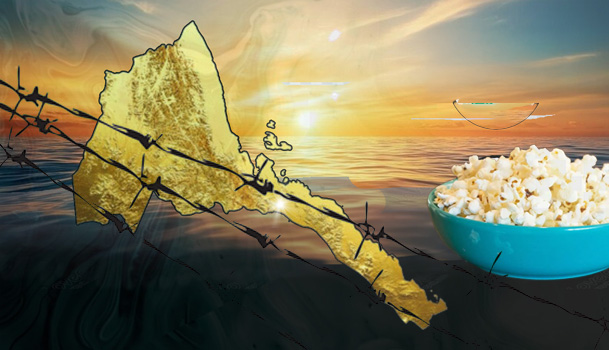The Courage to Be Eritrean: Navigating a Moment of Crisis

Eritrea stands at a precipice, a chasm in the unfolding narrative of our nation. This juncture demands not merely the reflex of action, but a descent into the very core of our being—a profound interrogation of what it means to be Eritrean. As the shadow of Ethiopia’s threatened war for Assab looms, we are compelled to confront not only the external specter of conflict but the phantoms within—the accumulated weight of our history that has sculpted our collective identity.
Eritrea’s saga is etched with an undeniable tenacity. We clawed our way to nationhood against all conceivable odds. Yet, the nascent dreams we carried into that dawn were swiftly consumed by the encroaching darkness of unelected authority, the endless drain of forced conscription, and the senseless attrition of wars that leached the very spirit from our people.
In this moment, the nation faces a two-fold existential threat: the potential for a war over Port of Assab and the specter of a civil war inside Eritrea due to the absence of any clear succession process. To navigate these crises effectively, we must move beyond our current approach and embrace a new path.
The Peril of Inadvertent Idolatry
A significant part of the challenge is our collective focus. We often read articles about Eritrea that, understandably, place a strong emphasis on Isaias Afewerki. While this focus is born from genuine concern, it can, perhaps unintentionally, consume our collective energy and intellect. This narrow perspective, which I too have been guilty of, is a profound miscalculation. By making Isaias the exclusive subject of our discourse, we are committing a form of “inadvertent idolatry.” It’s an error akin to focusing only on Hitler and forgetting the crucial roles played by the countless other acolytes who upheld and benefited from the system.
This singular focus is not only strategically flawed but also blinds us to the full scope of the problem. We must recognize that the suffocating rule extends beyond the man himself; it is manifested through the single ruling party, the PFDJ, a network of individuals who enable the repression and will fight to preserve their power in his absence. By fixating on the individual, we fail to adequately prepare for the twin crises. We underestimate the institutional and individual forces that would compete for power, making internal conflict more likely, and we fail to develop a cohesive strategy to navigate the external pressures on our sovereignty.
Lessons from History and the Path Forward
History offers powerful lessons for navigating this moment. The nonviolent resistance of Mahatma Gandhi in India and the anti-apartheid struggle led by Nelson Mandela in South Africa demonstrate that it is possible to stand for one’s nation without endorsing an unjust system. The courage to voice dissent and uphold the principles of justice can be as crucial to a nation’s survival as the might of its military. Similarly, the French Resistance fought against Nazi occupation while opposing the authoritarian collaborationist government in Vichy, and American civil rights activists upheld the ideals of the U.S. Constitution while condemning systemic racism. These examples remind us that the fight for the very soul of our nation need not necessitate an embrace of oppressive forces.
Our shared aspiration for Eritrea is far broader than any single person or political party. While acknowledging the undeniable impact of the current leadership, we must now prioritize our efforts in a new, urgent direction. We must channel our focus away from the shadow and toward a brighter future by:
• Dismantling the Idolatry of Personality: By shifting our focus, we can expose the true nature of the PFDJ’s power—a system of control upheld by many, not just one. This allows us to target the entire network, not just its figurehead.
• Building a Robust Framework for Democratic Governance: We must develop strong, accountable institutions, uphold the rule of law, and ensure a constitutional order that can withstand any transition and prevent the vacuum that leads to civil war.
• Empowering the Eritrean People: Our strength lies in fostering genuine popular participation, nurturing civil society, and creating spaces where every voice can contribute to shaping our nation’s future. This is the only lasting defense against internal strife.
• Articulating a Clear, Positive Vision: We must develop concrete strategies for economic recovery, pathways to national reconciliation, and securing our sovereignty—visions that stand strong, independent of the PFDJ’s presence and capable of addressing external threats peacefully and diplomatically.
• Fostering Unity around Shared Values: Our true power will emerge when we unite around fundamental principles like justice, freedom, and human dignity, creating a bond that can guide us through this critical moment of transition.
In these trying times, when the weight of the world feels heavy upon our shoulders, the words of the theologian Paul Tillich offer a profound encouragement: “Faith is the courage to be.” This is not a passive acceptance, but an active embracing of our being and our values, even in the face of overwhelming adversity and existential dread. It is the courage to stand firm in our convictions, to refuse to be defined by the oppressive forces that seek to diminish our humanity.
My hope—and my desperate plea—is that we can stand with our people not by succumbing to the seductive allure of violence or by lending strength to the regime, but by choosing paths that align with the unwavering principles of justice and peace. Let us not forget that the regime is but a shadow, not the essence of Eritrea itself. History, a relentless teacher, has shown us that isolating oppressive leaders from the very instruments of their power can erode the foundations of authoritarian control.
For those of us who yearn for justice, the challenge is immense: how do we act in ways that safeguard our sovereignty without contributing to the inevitable misery that war will unleash upon our people? The answer lies in a conscious choice, a deliberate alignment of our actions with our most profound values. Let us strive to diminish the human cost of this potential conflict by cultivating understanding, by standing in unwavering solidarity with one another, and by relentlessly seeking every conceivable avenue for nonviolent resistance.
To my fellow Eritreans, I pose this fundamental question: Can we envision an Eritrea that ascends not merely in brute strength but in the quiet dignity of integrity? Can we truly honor the profound sacrifices of the past by striving for a future finally liberated from the suffocating grip of oppression and the corrosive poison of division? We are a people forged in the crucible of courage, tempered by resilience, and sustained by the enduring flicker of hope—and it is in this fragile hope that I place my uncertain faith.
Together, let us act with a profound sense of integrity and an unwavering resolve, drawing wisdom from the echoes of history while striving to build a future that offers a glimmer of light for generations yet to come.


Awate Forum